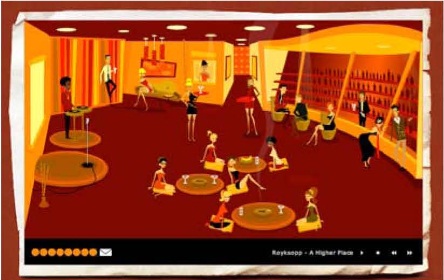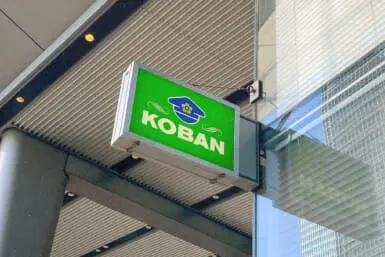Winning brand creation formula of Bamboo Worldwide
by Benjamin Freeland
“Traditional advertising is a fresh coat of paint. Marketing experiences are a whole new barn, “-excerpt from Twelve Secrets of the Bamboo Lounge.”
There was once a time when marketing was a pretty straightforward business, whereby a company would discern a niche market, devise a product or service to fill said niche and extol the virtues of the product or service in question. Alas, in today’s brand-centric marketplace, marketing is a dizzyingly complex business full of trendy terms like ‘experiential marketing’, ‘guerrilla marketing’, and ‘viral marketing,’ with the insinuation being that an advanced degree of some sort (possibly medicine) is needed in order to make market headway these days. While the reality is rather less daunting than this, there’s no denying that a background in psychology would be a positive boon in today’s marketplace, as the role of ‘brand personality’ and consumers’ bonds therewith has assumed a role every bit as important as the traditional emphasis on ‘features and benefits’, making today’s marketing an undeniably more complicated affair than ever before. Yet, it seems that there are some brands that seem to crash through the clutter and bonding with their customers at a much deeper level than just appreciation of a feature or benefit. From Hello Kitty to Harley Davidson, today’s successful brands have a life of their own that extends well beyond the realm of actual products, and any company seeking a competitive edge cannot afford to disregard the need for a strong brand personality.
“What we do is help brands to create underground
root networks-hence our name ‘Bamboo’.”
A textbook case of such brand personality creation is that of Bamboo Worldwide, a much talked about Chicago-based branding and innovation boutique that since its genesis six years ago has provided valuable branding and innovation work for companies ranging from startups, to behemoths like Quaker, Yellow Tail wines, the fast food licensor Yum!, and has attracted considerable attention both for its creative and collaborative methods for engaging clients and consumers alike. Bamboo’s unorthodox workplace culture is centered around its ‘Bamboo Lounge’, as the company’s head office is known, which famously features a fully stocked kitchen and a cocktail bar, and whose quirky interactive website, (www.bam-booexperience.com), has generated discussion in the blogosphere and engendered a handful of copycats, even another marketing agency in Australia who copied their name and website concept.
Bamboo weaves its own brand personality into everything they do with their clients. “Identical to the work we do for our clients about their brands’ experiences, the “Bamboo experience” should speak for itself, which is why all of our clients have come through word of mouth,” explains Bamboo founder Tracy Thirion. “We live our values that we preach to clients, that you need to know who your evangelists are, not be afraid of polarity, plant seeds of discovery, and trumping all—authenticity is everything.” A proudly unconventional company, Bamboo’s business, Thirion asserts, is the creation of ‘brand evangelism’ through grassroots marketing encompassing every stakeholder touchstone, citing Starbucks and Red Bull as thought leaders. “What we do is help brands to create underground root networks-hence our name ‘Bamboo’. It grows an inch a year for the first four years and in year five, can grow up to eighty feet. It grows a strong underground root network that supports sustainable growth, yet it’s flexible to adjust with the environment around it.”
Bamboo has expanded its root network beyond its Chicago home in 2006, establishing a second office in Tokyo in response to client demand, where it has since provided a number of companies with valuable branding strategies, notably the Australian wine [yellow tail], whose position in Japan as a leader in the category has been supported by Bamboo Japan KK.
According to Thirion, Bamboo’s arrival in Japan was a timely one, as a huge demand existed for the company’s innovative services. “Japan is an incredible market, and you can see a shift towards doing things differently, so we definitely arrived at the right time,” she declares. “We’ve had some learning to do, and we’ve had some sharing and teaching about our philosophies too. We also emphasize that the ‘three M’s’ (muri-impossible, muda-futile, and muzukashii-difficult) need to be set aside during our meetings.” In setting challenges such as these, Thirion explains, the Bamboo team seeks to coax its clients outside of their comfort zones and help them to think differently, a formula made easier by the company’s emphasis on a hip, convivial workplace atmosphere. “We believe in ‘being comfortable being uncomfortable’, because no one talks about brands that are safe or mediocre —we need to push the boundaries to be remarkable,” she asserts. “We have a strong, persistent and passionate team and are always looking for more great talent and fun clients. While we are certainly not trying to change the culture of Japan, we do believe that there’s room for creativity in the way brands engage their fans.”
If business author Seth Godin’s assertion that “Boring is always the riskiest strategy” is indeed the case, Bamboo Worldwide is about the least risky operation in its field, and judging by the marketing success in Japan of [yellow tail] and other Bamboo clients, it would appear that the Chicago firm’s strategy for drawing out the best creative juices around is every bit as much of a winner in the Japanese market as elsewhere. Moreover, in a country always on the lookout for hip new ideas from overseas, Thirion and the crew ought to do very well, and with grassroots marketing in its infancy in Japan, Bamboo is likely to set the standard for the industry’s future development here.
For further information on Bamboo Worldwide see www.bambooexperience.com.









